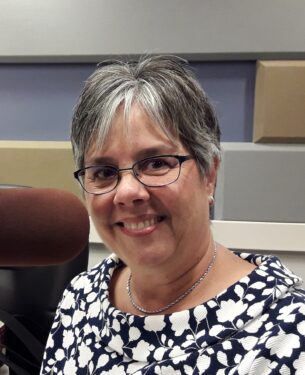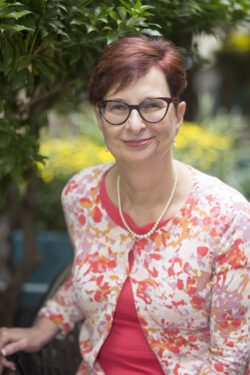
WINDSOR TERRACE — March is National Social Work Month and the theme of this year’s celebration is “Social Workers are Essential.”
The theme would seem to be right on target, judging from what Karen Wilkow, a social worker with 20 years of experience has to say about her job.
“We are a key part of the team taking care of the patient — just as doctors and nurses are,” said Wilkow, who works in a unit run by Calvary Hospital in NYU Langone Hospital-Brooklyn in Sunset Park. Calvary rents the space from NYU Langone.
There are approximately 700,000 social workers in the U.S. In 2019, the median salary was $50,470, according to the U.S. Bureau of Labor Statistics. Social work as a profession dates back to the 19th Century. In 1898, Columbia University began offering a training program for social workers.
The job is difficult and varied. Among other things, social workers protect children from abuse and neglect, help people with mental health issues and substance abuse problems, care for dying patients, and assist active duty military members, veterans, and their families, according to the National Association of Social Workers.
“It’s a rewarding and gratifying job,” said Kate Mohan, assistant director of support services. Calvary Hospital’s hospice care program consists of inpatient services as well as a team of social workers that visit patients’ homes. Calvary Hospital was founded in 1899 by the Archdiocese of New York.
Social workers enter every situation “with a gigantic toolbox,” said Mohan, explaining that they use whatever “tools” (or skills) are required.
Some patients’ families need help navigating Medicaid or other government services. Others require emotional support. “Families are trying to process and accept the diagnosis,” Mohan said.
At times, social workers are referees. For example, Wilkow negotiated a truce between two sons who were at odds and were not speaking to each other when their mother was dying.
“A lot of the job is improvising,” Wilkow said. “The most important thing is we treat each patient as if they’re our only patient.”
The COVID-19 pandemic did not alter that approach in any way, although Calvary Hospital had to make adjustments to handle the number of patients coming in, Wilkow said. “COVID really made it chaotic. The stress level was very high,” she said.
The unit housed at NYU Langone normally has 25 beds. The unit was expanded to 50 beds during the pandemic.
“But we still remained true to our mission,” Wilkow said.
When bedside visits had to be curtailed, social workers arranged Facetime and Zoom calls between patients and families.

Wilkow, who took up social work as a second career after spending years as a medical assistant, keeps a bowl of candy on her desk to brighten the day. When she begins her workday, “I take a deep breath to center myself.”
Angela Calabrese said the social worker who handled her mother’s case in the last days of her life wound up saving her life too.
Calabrese’s 79-year-old mother, Elaine DiPaolo, died at home on April 15. DiPaolo suffered from dementia but Calabrese believes she died of COVID. “We didn’t get her tested to confirm it,” she said.
The last eight days of her mother’s life were the most stressful days she had ever experienced.
The pandemic was at its peak and no one could come to her mother’s house to take care of her. “I felt all alone. I couldn’t take her to the hospital because I wouldn’t have been able to get in and visit her — not with COVID around. I didn’t want her to die alone in a hospital,” Calabrese recalled.
Calvary Hospital came to her rescue, she said. Calabrese was in such an emotional state that months later, she could not recall the social worker’s name. Hospital officials identified her as Megan Kuklevsky.
And the care and concern lasted even after her mother died. “The day after she died, I was cleaning out my mother’s apartment and my phone rang. It was the social worker. She said, ‘I just wanted to see how you’re feeling today.’ She took the time to talk to me,” Calabrese said.
“We really stepped up during COVID,” said Mohan. “We made sure to call the family as soon as possible.”
